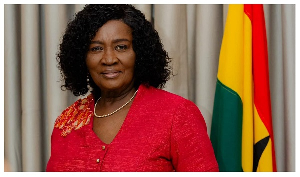The continuous existence of parallel pension schemes like CAP 30 – a non-contributory pension scheme, remains a real threat to the three-tier pension system, the sector’s regulator has warned.
The National Pensions Act (766), passed in 2008, stipulates that all parallel pension schemes be unified and brought under the three-tier pension scheme by January 2016. But despite the law’s existence since 2008, its provisions have not been implemented.
“Parallel schemes have a way of undermining the whole reforms because they are one of the reasons the reforms were introduced,” Emmanuel Awuku Dagbanu, Corporate Affairs Manager at the National Pensions Regulatory Authority (NPRA), told the B&FT in Accra.
He said their continued existence implies that the inequity in payment of pension benefits for public sector workers still persists. “It means people may not be contributing toward their retirement, and yet when they go on retirement they get a lump-sum higher than those who contributed”.
The process of unifying all pension schemes in the country is one of NPRA’s mandates to ensure the fragmented pension regimes are harmonized.
Under the CAP30, which was set up in 1952, civil servants were not supposed to contribute – as well as the Armed Forces, Ghana Prisons Service, and other security agencies.
Asked what consequences may arise if unification is not achieved, Mr. Dagbanu said labor unions will most likely lay down their tools.
Impact on Consolidated Fund
In 2018 alone, it was estimated that an amount of GH¢1.3billion went into paying retirees on the CAP30 Pension Scheme who draw their pensions from the Consolidated Fund. This is despite Act 766 calling for it be phased-out by the end of 2014.
Retirees who fall under the CAP 30 category do not contribute toward their retirement but receive higher benefits than those who contribute when they are no longer in active service.
In April last year, for instance, the Controller and Accountant General office wailed that the scheme was draining the state. It said monthly payments under the CAP 30 scheme were estimated to reach GH¢120 million by the close of 2018.
It is in this regard that the NPRA believes urgent unification must be fast-tracked in order to ensure the sustainability of the new three-tier contributory pension regime.
It said this is particularly important for ensuring equity in the payment of pension benefits and to pre-empt impending labor agitation.
“It also affects the Consolidated Fund. The amount of money paid to those outside the three-tier pension system is so huge and unsustainable that the government cannot afford to continue paying benefits to people who are not contributing to their retirement,” Mr. Dagbanu added.
Business News of Monday, 7 October 2019
Source: thebftonline.com
Parallel schemes threaten three-tier pension system - Reports
Entertainment












